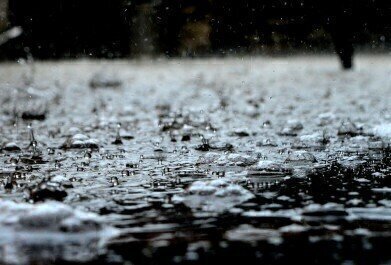Water/Wastewater
What Are the Different Types of Wastewater?
Aug 22 2019
Broadly speaking, wastewater is any water that’s been used. That could be by an individual, a business or an industrial process like farming or manufacturing. However, this can be broken down further, depending on where the water comes from and what’s in it.
Two types of wastewater
First of all, wastewater can be broken down into two broad categories – sewage and non-sewage.
What is sewage?
Sewage is wastewater that comes from domestic activities. That includes houses, public toilets, restaurants, schools, hotels and hospitals. These buildings all produce a lot of wastewater on a daily basis, which generally contains urine and faeces.
What is non-sewage?
Non-sewage covers all other types of wastewater. That includes rainwater and stormwater from flooding, water from commercial activity like garages or laundrettes and water from industrial plants.
Wastewater in your home
In a domestic sense – the kind we’re all most familiar with – wastewater is split into three categories – black, grey and yellow.
What is blackwater?
Blackwater is wastewater that comes from your toilet, kitchen sink and dishwasher. It contains all the contaminants you would expect from these appliances and fixtures. Faeces, urine and toilet paper, bits of discarded food and plenty of cleaning liquids and chemicals are found in blackwater. As a result, the water is highly contaminated and could potentially cause disease.
What is greywater?
In simple terms, greywater is blackwater without urine, faeces or food waste. It comes from baths, bathroom sinks and washing machines (for clothes). While it does contain chemicals and cleaning liquids, it’s much more suitable for re-use because it’s not pathogenic.
What is yellow water?
Finally, yellow water is essentially pure urine. It’s urine from specific sources which doesn’t have any of the contaminants found in greywater or blackwater like chemicals, toilet paper, faeces and food particles.
Treating wastewater
Once water is used, that doesn’t mean it has to be disposed of completely. After all, there’s only so much water on the earth. Instead, wastewater is treated to remove contaminants so it can be reused. Of course, to be reused, it has to meet certain standards and criteria – depending on the nature of reuse.
One such criteria is the water’s organic load, which can be monitored using the Total Organic Carbon in the water. The e-learning session ‘Transforming wastewater treatment with TOC monitoring’ will explore how this parameter can be used to further optimise performance for wastewater plants.
Digital Edition
AET 28.2 April/May 2024
May 2024
Business News - Teledyne Marine expands with the acquisition of Valeport - Signal partners with gas analysis experts in Korea Air Monitoring - Continuous Fine Particulate Emission Monitor...
View all digital editions
Events
Jul 30 2024 Jakarta, Indonesia
China Energy Summit & Exhibition
Jul 31 2024 Beijing, China
2024 Beijing International Coal & Mining Exhibition
Aug 07 2024 Beijing, China
IWA World Water Congress & Exhibition
Aug 11 2024 Toronto, Canada
Aug 25 2024 Stockholm, Sweden and online









.jpg)








